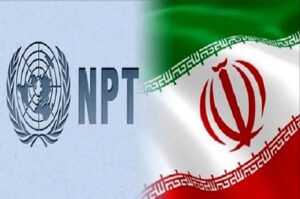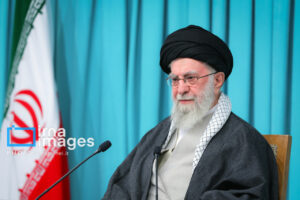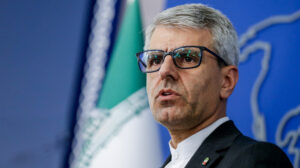A fundamental principle in national security suggests that bombing a country will not force it to abandon its nuclear weapons ambitions. Such an attack only strengthens the target nation’s resolve to develop ultimate deterrence.
The New York Times writes: Tehran has ended its cooperation with international inspectors and declared that no agreement is possible post-bombardment. On Wednesday, in what may be a glimpse into the future, Iran’s President Masoud Pezeshkian signed a new law suspending all cooperation with UN nuclear inspectors.
However, with Trump’s attack on Iran’s nuclear facilities, a new chapter in Iran’s quarter-century-long nuclear ambitions may have begun.
U.S. President Donald Trump speaks as if this was a one-off, conclusive operation. At last week’s NATO summit in The Hague, he stated, “I don’t see them getting back into the nuclear business again,” as if Iran’s aspirations vanished under the rubble of Fordow and Natanz.
But it’s not that simple. The White House has avoided publicly outlining any long-term strategy. Trump has occasionally hinted at new negotiations that could lead to sanctions relief—but likely only in exchange for Iran dismantling what remains of its nuclear program and allowing inspectors to verify this. This does not seem to align with Tehran’s current mood.
Jake Sullivan, who, as national security advisor under President Joe Biden, helped refine attack plans against Iran’s program, said: “After the attack, the old problem persists: Iran has enriched uranium, it has centrifuges, and there are no inspections. For any deal, Trump faces the same old dilemma: Do you insist on complete dismantlement, which Iran likely won’t agree to even now? Or do you try to contain the program,” allowing some low-level enrichment with robust inspections, while their fuel stockpiles remain intact and their surviving nuclear scientists have access to them.
Robert Einhorn, a former U.S. diplomat and nuclear expert at the Brookings Institution who dealt with Iran’s program a decade ago, said: “This is a potential path for Iran to build a small nuclear arsenal in the relatively near future, and therefore we must do everything we can to prevent it, primarily by restoring IAEA inspectors to Iran’s scattered nuclear facilities, including two new enrichment sites.”
According to the report, Iranian officials have claimed that IAEA Director General Rafael Grossi was complicit in the attacks.
The New York Times writes that preliminary talks about a meeting between Iran’s Foreign Minister Seyyed Abbas Araghchi and Trump’s special envoy Steve Witkoff to reach a nuclear agreement post-attack—likely a more limited deal than what was on the table before—have, for now, fallen apart. Iranians insist on assurances that they will not be attacked again during negotiations. Experts see little hope for an agreement that satisfies both sides.
The U.S. outlet notes that even if Iran were given assurances against further attacks, Iranians would not believe them. Just two days after Trump gave Iran a two-week window to respond to a U.S. proposal, American bombers were over their targets.
A former senior U.S. intelligence official stated that if Iran had nuclear weapons, neither Israel nor the U.S. would have risked this attack.







